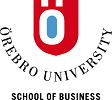No 2014:5: Trade, Migration and Integration – Evidence and Policy Implications
Andreas Hatzigeorgiou () and Magnus Lodefalk ()
Additional contact information
Andreas Hatzigeorgiou: Lund University
Magnus Lodefalk: Örebro University School of Business, Postal: Örebro University, School of Business, SE - 701 82 ÖREBRO, Sweden
Abstract: This paper takes departure in the unique position taken by Swedish policymakers recently in giving explicit emphasis to migration as a tool for increasing trade. We attempt to put this position to empirical scrutiny. Our results demonstrate that migrants spur exports, especially along the extensive product margin of trade and for differentiated products, but with no significant impact on imports. This suggests that for small open economies with many immigrants being refugees, the aim of using migration to facilitate trade may only be effective with respect to exports. This paper also contributes to the literature on trade and migration by exploiting data on gender and age, which allow us to draw inferences on the underlying impact channels. We adopt an instrumental variable approach to address the endogeneity issue due to potential reverse causality. The pattern of results is consistent with the hypothesis that migration mainly reduces fixed trade costs derived from information and trust friction across migrant host and source countries. Importantly, the results imply that policymakers may be able to promote trade by improving immigrants’ labor market integration rather than being restricted to more liberal immigration policies, which is generally more controversial.
Keywords: Trade; migration; gravity model; trade COSTs; networks; information; trust; trade policy
46 pages, July 31, 2014
Full text files
wp-5-2014.pdf
Questions (including download problems) about the papers in this series should be directed to ()
Report other problems with accessing this service to Sune Karlsson ().
RePEc:hhs:oruesi:2014_005This page generated on 2026-01-16 04:38:49.

